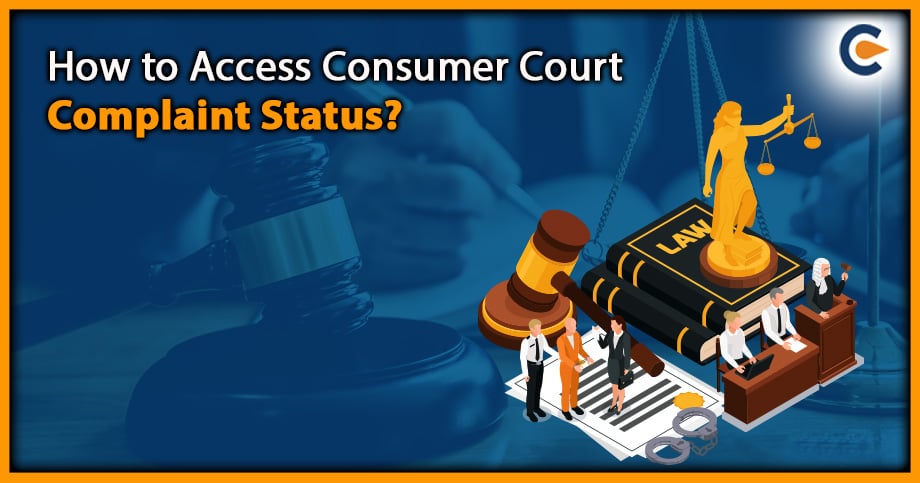The rise of e-commerce has been a game-changer for consumers worldwide, enabling them to purchase goods and services from the comfort of their homes. However, this has also led to an increase in the number of consumer complaints related to online transactions. To address this issue, governments around the world are implementing various measures to protect consumers’ rights. One such measure is the Ecommerce Consumer Complaint Act.
The Ecommerce Consumer Complaint Act is a new piece of legislation that aims to provide consumers with greater protection and transparency when shopping online. The act says that e-commerce platforms must set up a fair, clear, and effective way to handle complaints. It also stipulates that e-commerce companies must respond to consumer complaints within a specified timeframe and keep consumers informed about the status of their complaints.
Define E-Commerce
E-commerce, also known as electronic commerce, refers to the buying and selling of goods and services over the internet. It involves a range of commercial activities such as online shopping, electronic payments, online auctions, and internet banking. E-commerce has become increasingly popular in recent years, driven by the growth of the internet and the increasing use of smartphones and other mobile devices. E-commerce has revolutionized the way businesses operate, allowing them to reach customers around the world and enabling consumers to shop online from the comfort of their homes.
When Can You File an E-Commerce Consumer Complaint
A consumer can file an e-commerce consumer complaint when they have a grievance related to a product or service purchased from an e-commerce company. The grievance could be related to a range of issues such as:
- Non-delivery of the product or service
- Defective or damaged products
- Wrong product or service delivered
- Delayed delivery of the product or service
- Refund related issues such as delayed refunds or partial refunds
- Payment related issues such as double payment or unauthorized charges
How to File an E-Commerce Consumer Complaint?
File a complaint with the Grievance Officer: If the customer support team is not able to resolve your complaint, you can file a complaint with the Grievance Officer of the e-commerce company. Every e-commerce company is required to have a Grievance Officer who is responsible for addressing consumer complaints. You can find the contact details of the Grievance Officer on the e-commerce company’s website. Provide all relevant details in your complaint such as order number, product details, and date of purchase. Keep a record of your communication with the Grievance Officer.
Escalate the Complaint to Higher Authorities
If your complaint is still not resolved, you can escalate it to higher authorities such as the Consumer Protection Authority or the Consumer Dispute Redressal Commission. You can file a complaint online or in-person, depending on the requirements of the authority. Provide all relevant details in your complaint such as order number, product details, and date of purchase. Keep a record of your communication with the authority.
Seek Assistance from National Consumer Helpline
If you are not satisfied with the resolution provided by the e-commerce company or the higher authorities, you can seek assistance from the National Consumer Helpline. The National Consumer Helpline provides assistance to consumers in resolving their grievances related to any product or service. You can call the helpline or file a complaint online.
In summary, consumers can file an e-commerce consumer complaint by contacting the customer support team, filing a complaint with the Grievance Officer, escalating the complaint to higher authorities, or seeking assistance from the National Consumer Helpline. It’s important to provide all relevant details and keep a record of all communication related to the complaint.
E-Commerce Consumer Complaint Act
The E-commerce Consumer Complaints Redressal Guidelines, 2020, commonly known as the E-commerce Consumer Complaint Act, is a set of guidelines issued by the Ministry of Consumer Affairs, Food and Public Distribution, Government of India, to protect the interests of e-commerce consumers in India. The guidelines were introduced to address the grievances of consumers related to e-commerce transactions, which have become increasingly common with the rise of e-commerce platforms in the country.
The guidelines require all e-commerce companies operating in India to establish a grievance redressal mechanism that provides a fair and effective resolution of complaints filed by consumers. The guidelines define an e-commerce consumer as any person who purchases goods or services online through an e-commerce platform or mobile application.
The E-Commerce Consumer Complaint Act Outlines The Following Key Provisions:
- E-commerce companies are required to appoint a grievance officer who will address all consumer complaints within a reasonable time frame.
- E-commerce companies must prominently display the name and contact details of the grievance officer on their website and mobile application.
- E-commerce companies are required to acknowledge the receipt of complaints filed by consumers within 48 hours and provide a resolution within 45 days.
- E-commerce companies must provide an effective and efficient system for redressing grievances and resolving disputes in a fair and transparent manner.
- E-commerce companies must ensure that the goods or services sold on their platforms comply with all applicable laws and regulations.
- E-commerce companies must provide consumers with accurate and complete information about the goods or services sold on their platforms, including the price, description, and quality of the product or service.
- E-commerce companies are required to inform consumers of their right to file a complaint with the Grievance Officer or the Consumer Dispute Redressal Commission.
The E-commerce Consumer Complaint Act aims to ensure that consumers are provided with a fair and effective mechanism for redressing their grievances related to e-commerce transactions. The act has helped to establish a legal framework for e-commerce companies in India to operate within, which promotes transparency, accountability, and consumer protection.
Benefits of Ecommerce Consumer Complaint
Here are some of the benefits that consumers can expect from the new Ecommerce Consumer Complaint Act:
Improved Customer Service
E-commerce companies will now have to prioritize customer service, ensuring that they respond to complaints quickly and efficiently. This will result in a better overall experience for consumers, who will feel valued and respected by the company.
Increased Transparency
The Ecommerce Consumer Complaint Act requires e-commerce companies to be more transparent about their complaint-handling process. This will make it easier for consumers to understand how to file a complaint and what they can expect from the process.
Stronger Legal Protection
The act provides consumers with stronger legal protection when shopping online. This means that if a consumer is dissatisfied with a purchase, they will have a legal framework to seek redress, including the ability to escalate complaints to relevant regulatory authorities.
Better Resolution of Complaints
The Ecommerce Consumer Complaint Act requires e-commerce companies to establish a fair and effective complaint-handling mechanism. This means that consumers can expect their complaints to be resolved more quickly and to their satisfaction.
Greater Trust in E-Commerce
By providing consumers with greater protection and transparency, the act will help to build trust in the e-commerce industry. This will encourage more consumers to shop online, driving the growth of the industry and benefiting businesses and consumers alike.
Legal Provisions of Ecommerce Consumer Complaint Act
The E-commerce Consumer Complaints Redressal Mechanism (ECCRM) is a set of legal provisions that govern the process of handling consumer complaints in the e-commerce sector. The ECCRM provides guidelines for e-commerce companies to follow when resolving consumer complaints and is designed to protect the interests of consumers.
Some of the key legal provisions of the ECCRM are as follows:
Appointment of Grievance Officer:
E-commerce companies are required to appoint a Grievance Officer who is responsible for addressing consumer complaints. The Grievance Officer must be available to consumers at all times and must respond to complaints within 48 hours.
- Redressal Mechanism
E-commerce companies are required to establish a redressal mechanism for consumer complaints. The redressal mechanism should be fair, transparent, and effective in resolving complaints. The mechanism should also provide consumers with a timeline for the resolution of their complaints.
- Complaint Registration
E-commerce companies are required to provide consumers with a mechanism to register complaints. The complaint registration process should be easy to use and accessible to consumers. Companies are required to acknowledge receipt of complaints within 24 hours.
- Complaint Resolution
E-commerce companies are required to resolve complaints within 45 days from the date of receipt. If a complaint cannot be resolved within this period, the company must inform the consumer of the reason for the delay and provide an expected timeline for resolution.
Escalation of Complaints:
If a consumer is not satisfied with the resolution provided by the e-commerce company, they can escalate the complaint to the Consumer Protection Authority or the Consumer Dispute Redressal Commission. The consumer can also approach the National Consumer Helpline for assistance.
Record Keeping:
E-commerce companies are required to maintain records of consumer complaints, including the nature of the complaint, the date of receipt, and the resolution provided. These records must be maintained for a minimum of three years.
Penalties:
Non-compliance with the provisions of the ECCRM can result in penalties for e-commerce companies. Penalties can include fines, suspension of business activities, or cancellation of licenses.
The ECCRM’s legal provisions are meant to protect the interests of consumers and give them a way to deal with their problems. By establishing a fair and effective complaint-handling process, e-commerce companies can improve customer satisfaction and build trust with their customers. Compliance with the ECCRM provisions can also help companies avoid penalties and protect their reputation in the market.
Conclusion
In conclusion, the Ecommerce Consumer Complaint Act is a significant step towards improving consumer protection and transparency in the e-commerce industry. Consumers can expect to benefit from improved customer service, increased transparency, stronger legal protection, better resolution of complaints, and greater trust in e-commerce. As more countries adopt similar measures, we can expect to see a more vibrant and trustworthy e-commerce industry that benefits everyone involved.
Read Our Article: Comprehensive Guide On Consumer Protection Rules On E-Commerce, 2020











